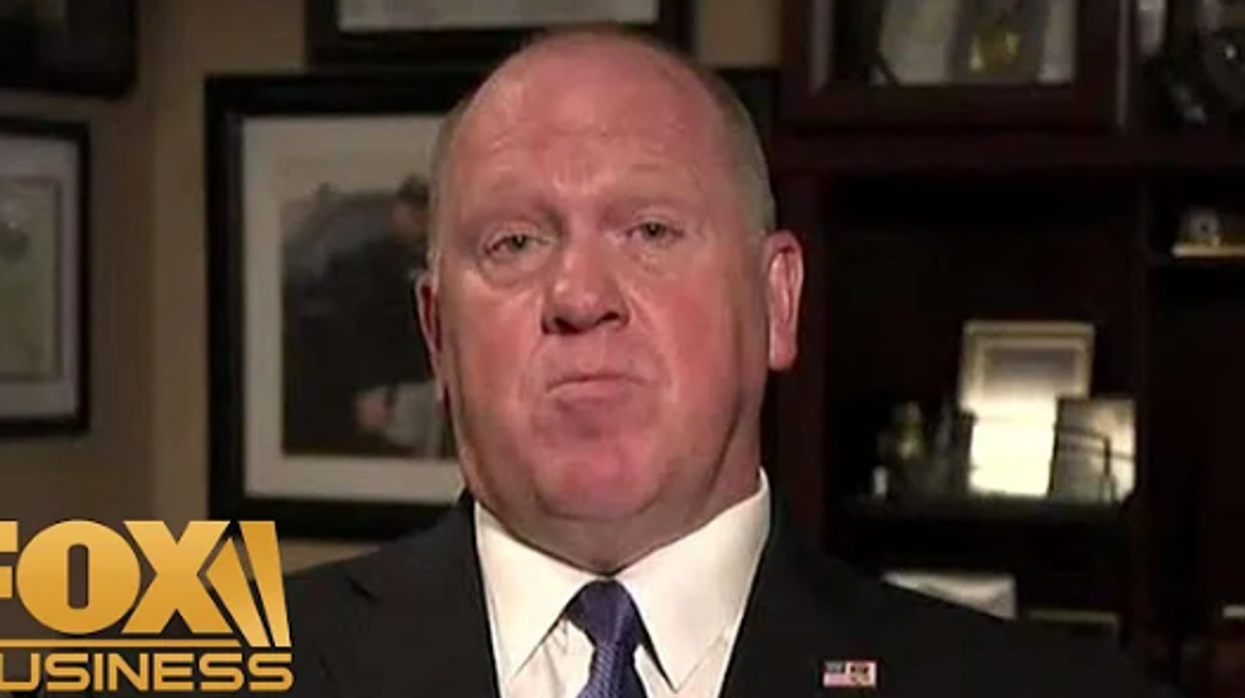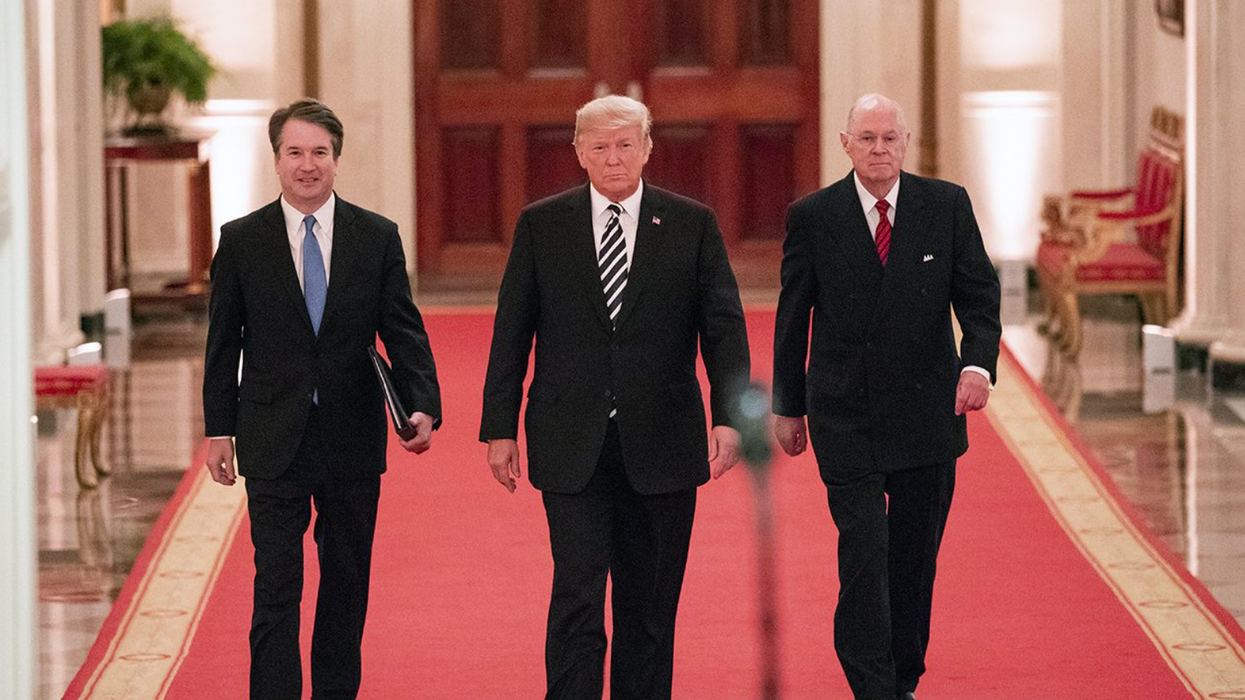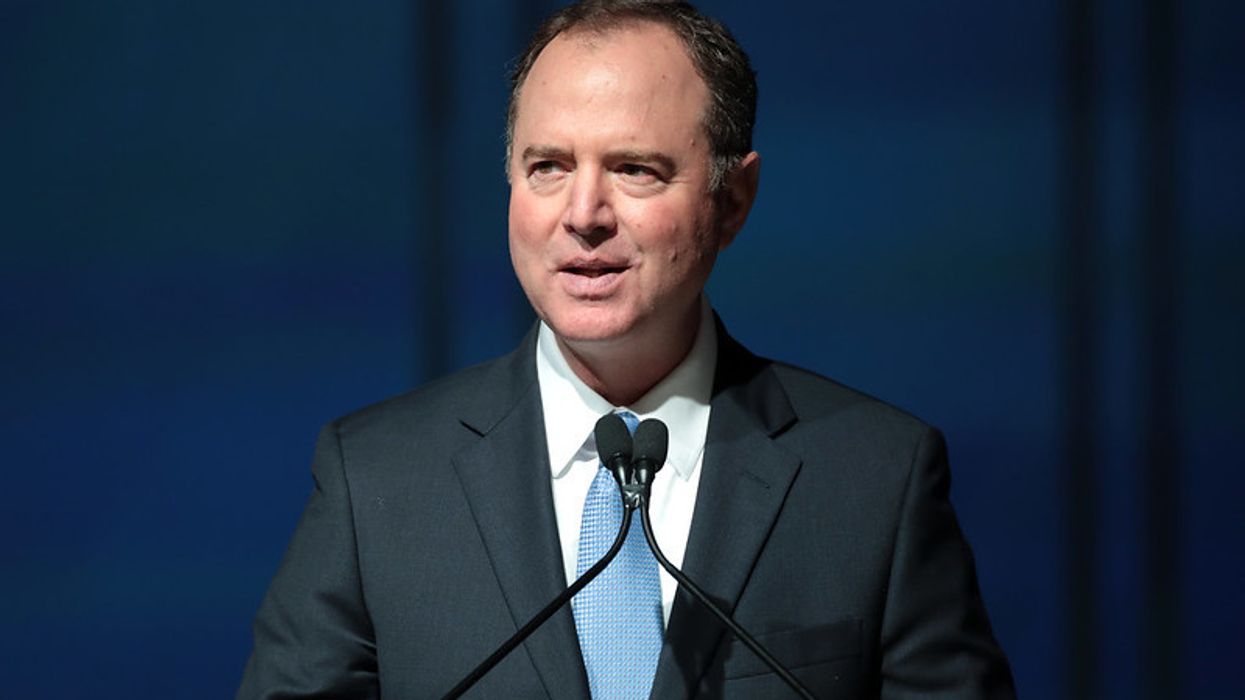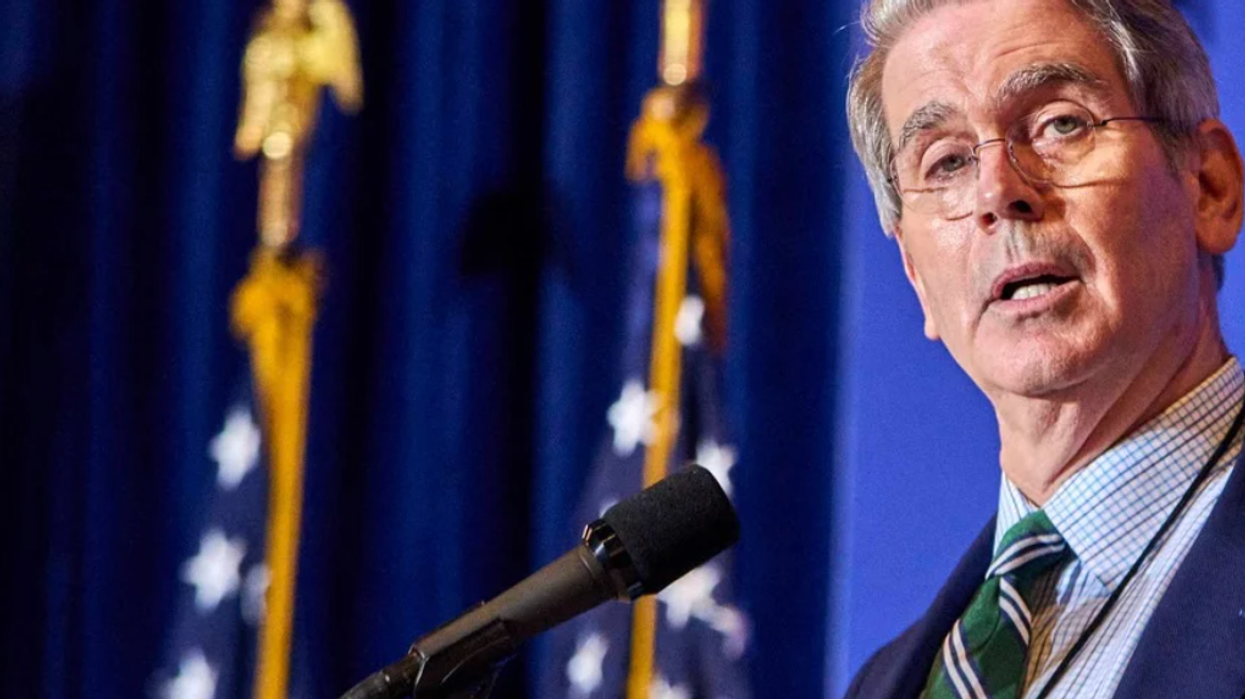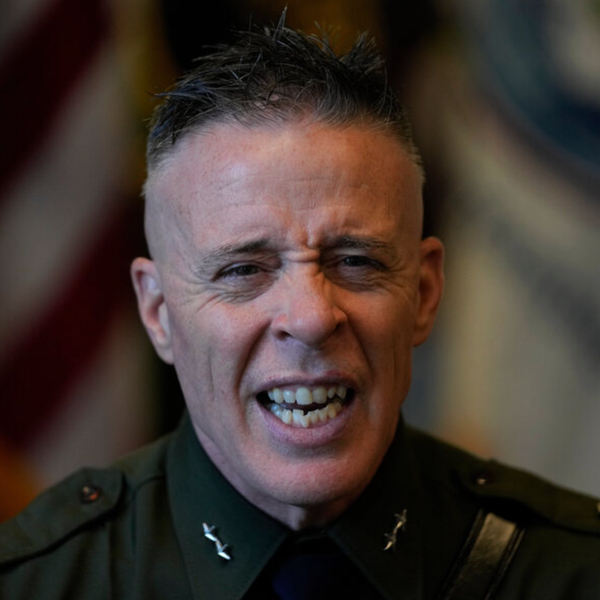'Release The Tapes': Lawmakers Demand Details On Homan Bribery Probe
Accusations of supreme corruption, demands for an investigation, and calls for impeachment proceedings for several high-level Trump administration officials erupted after it was reported on Saturday that a Justice Department probe into Tom Homan, who serves as President Donald Trump’s border czar, was dropped despite documented evidence he accepted a bribe of $50,000 delivered in a bag by undercover FBI agents as part of a sting operation.
Citing multiple people “familiar with the probe,” a review of internal documents, MSNBC was the first to report that during “an undercover operation last year, the FBI recorded Tom Homan [...] accepting $50,000 in cash after indicating he could help the agents—who were posing as business executives—win government contracts in a second Trump administration.”
The New York Times, which also spoke to people familiar with the case, reported that the “cash payment, which was made inside a bag from the food chain Cava, grew out of a long-running counterintelligence investigation that had not been targeting Mr. Homan,” and that the encounter, as MSNBC also reported, was recorded. The Times indicates that the recording was audio, while MSNBC‘s version of the evidence suggests that video footage exists.
“Americans deserve disclosure of evidence showing top DHS official Homan accepting a bag full of $50,000 in cash We need to know why the investigation was dropped—all the facts and evidence.” —Sen. Richard Blumenthal
The case implicates both FBI Director Kash Patel and Attorney Pam Bondi, who heads the Justice Department. Both were appointed by Trump and are deeply loyal to him politically.
MSNBC reports:
It’s unclear what reasons FBI and Justice Department officials gave for shutting down the investigation. But a Trump Justice Department appointee called the case a “deep state” probe in early 2025 and no further investigative steps were taken, the sources say. On Sept. 20, 2024, with hidden cameras recording the scene at a meeting spot in Texas, Homan accepted $50,000 in bills, according to an internal summary of the case and sources.
The federal investigation was launched in western Texas in the summer of 2024 after a subject in a separate investigation claimed Homan was soliciting payments in exchange for awarding contracts should Trump win the presidential election, according to an internal Justice Department summary of the probe reviewed by MSNBC and people familiar with the case. The U.S. Attorney’s office in the Western District of Texas, working with the FBI, asked the Justice Department’s Public Integrity Section to join its ongoing probe “into the Border Czar and former Acting Director of Immigration and Customs Enforcement Tom Homan and others based on evidence of payment from FBI undercover agents in exchange for facilitating future contracts related to border enforcement.”
The revelations prompted Rep. Pramila Jayapal (D-WA) to declare that Trump’s second term is the “most corrupt administration we have ever seen.”
Matt Duss, executive vice-president at the Center for International Policy, asked: “Seriously though, has anyone ever been handed $50,000 cash in a paper bag for something legit?”
While that’s not a legal standard, news of the dropped case against Homan, given his central role in Trump’s ramped-up attacks on migrants and communities nationwide, sparked an array of outrage, many questions, and a demand for more answers from the Justice Department.
“Who’s the illegal now, Tom Homan?” asked Rep. Alexandria Ocasio-Cortez (D-NY).
“Tom Homan should be fired immediately and charged,” said Rep. Bonnie Watson Coleman (D-NJ). “Kash Patel should be suspended pending impeachment proceedings, and anyone who aided in this cover-up should be held accountable. Homan’s relationship with GEO Group, who own Delaney Hall in Newark, should be thoroughly investigated, and the facility closed pending that investigation. The amount of corruption in this administration is endless.”
Sen. Ed Markey (D-MA) had a similar reaction. “Corruption that’s stunning even for this administration,” Markey said. “Homan and anyone who knew and covered this up must resign.”
As the Times reporting notes, the “episode raises questions about whether the administration has sought to shield one of its own officials from legal consequences, and whether Mr. Homan’s actions were considered by the White House when he was appointed to his government role.”
In response to questions from MSNBC and the Times, Trump officials downplayed the seriousness of the case. They said that after it was investigated, the bribery allegations did not stand up.
White House Deputy Press Secretary Abigail Jackson told MSNBC the probe that led to the recording of Homan was a “blatantly political investigation.” However, it’s clear from the reporting that the original investigation was not targeting Homan at all.
In a joint statement issued Saturday, Patel and Todd Blanche, the deputy attorney general, said the investigation “was subjected to a full review by F.B.I. agents and Justice Department prosecutors. They found no credible evidence of any criminal wrongdoing.”
That hardly satisfied Democrats in Congress, who said it’s clear the public has a right to know every detail about what occurred and why the case was dropped.
“Release the tapes—Americans deserve disclosure of evidence showing top DHS official Homan accepting a bag full of $50,000 in cash,” said Sen. Richard Blumenthal (D-CT). “We need to know why the investigation was dropped—all the facts and evidence.”
Reprinted with permission from Alternet.

